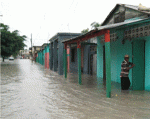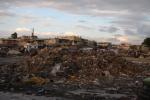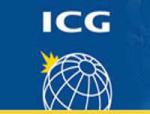Storm Weary Haiti Braces for the Rains
 Hurricane season has begun. Flooding will be inevitable each year until environmental degradation is reversed. Still, leadership, preparation, and coordination can mitigate the human and economic costs. Jacqueline Charles describes, in the Miami Herald, the last minute efforts of the Haitian government to bolster infrastructure in Haiti's most vulnerable cities, yet to recover from the consequences of last year's storms. Haiti is more ready than it was last year, but still has a long way to go.
Hurricane season has begun. Flooding will be inevitable each year until environmental degradation is reversed. Still, leadership, preparation, and coordination can mitigate the human and economic costs. Jacqueline Charles describes, in the Miami Herald, the last minute efforts of the Haitian government to bolster infrastructure in Haiti's most vulnerable cities, yet to recover from the consequences of last year's storms. Haiti is more ready than it was last year, but still has a long way to go.








